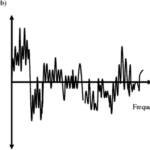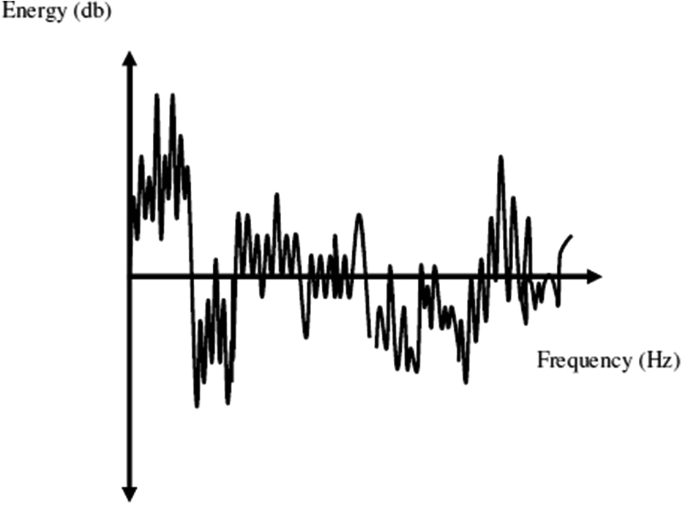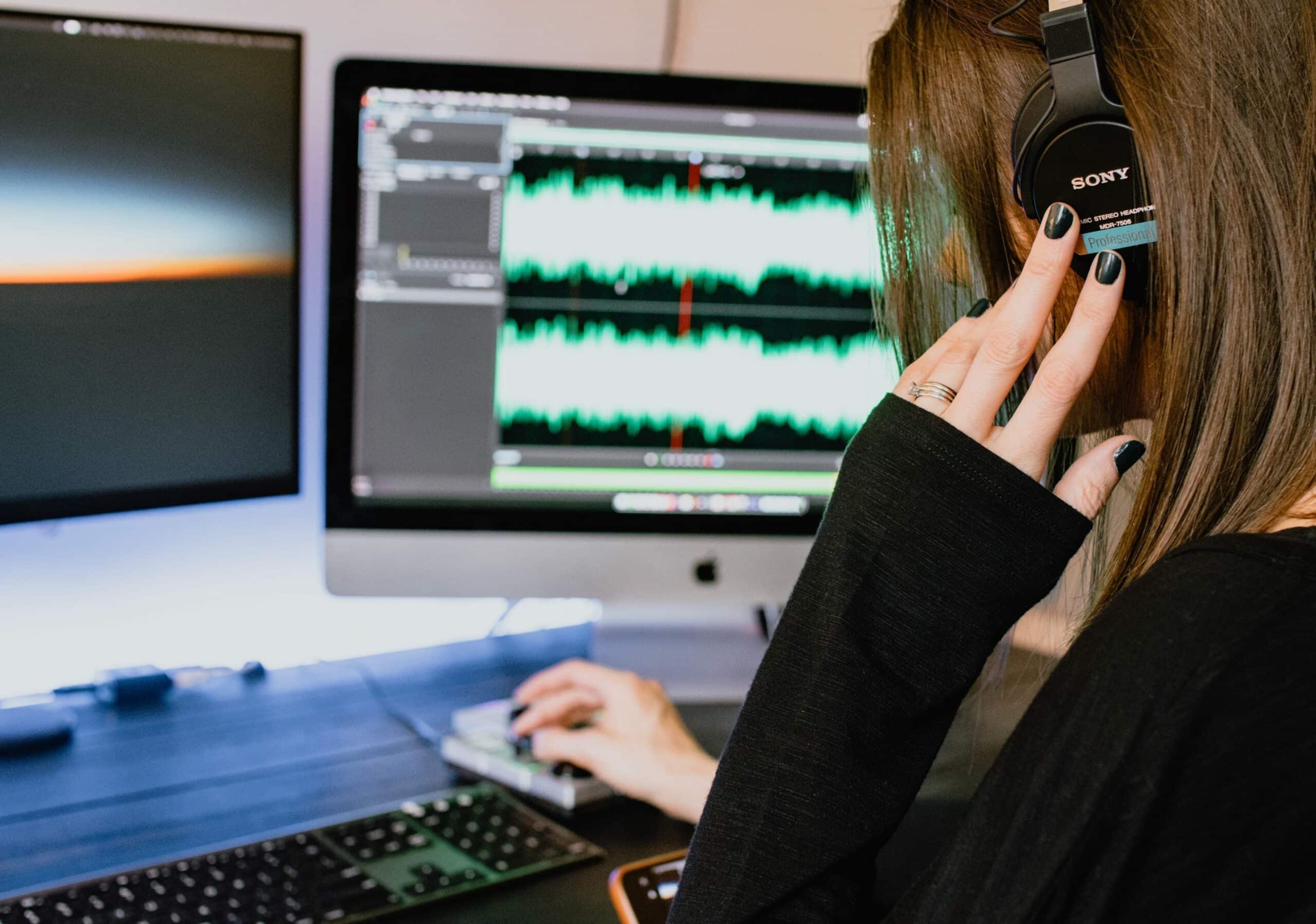Are you sick and tired of not getting the audio quality you want from your tunes? Does your music library sound like it was recorded a few decades ago instead of today? If your audio could use a little TLC, then you’re in luck with Media Medic! Professional audio enhancement services can help you unlock your audio’s true potential.
When it comes to audio enhancement, these services are top-notch. With modern technology such as noise suppression, audio separation, and more, you can finally achieve the sound you’ve been dreaming about. Not only that, but professional audio enhancement services can also enhance the overall quality of your music library without shredding the sonic integrity of your recordings.
In this blog post, we’re going to look at how professional audio enhancement services can improve your sound as well as all of the benefits that come with it. We’ll discuss the different types of audio services, and factors to consider before you commit, and we’ll also go over some tips and tricks that you can use to capture the perfect sound. So, get ready to kick your audio up a notch and discover why professional audio enhancement services are essential for any music enthusiast.
Quick Summary of Key Questions
The cost of audio enhancement services can vary widely depending on the type and complexity of the job. Most audio professionals charge an hourly rate, but flat rates may be available for smaller projects.
What is Audio Enhancement?

Audio enhancement is the process of making sound recordings clearer and more dynamic. It involves techniques like noise reduction, equalization, compression, and more to improve the quality of a recording. By using these tools, audio engineers can bring out the subtle nuances in a song or spoken word performance that may have otherwise gone unnoticed.
The debate surrounding audio enhancement is typically centered around how far enhancements should go before they become too obvious or artificial sounding. Some people argue that audio enhancements shouldn’t be used at all, as they can lead to a loss of authenticity in the recording. Others believe that there are certain adjustments that are necessary and beneficial for improving sound quality.
Regardless of one’s opinion on the matter, audio enhancement services play an important role in achieving professional-level sound. As technology has advanced, it has become increasingly easier to use software to make corrections and adjust certain aspects of recordings in order to optimize their sound. This is why many studios rely on professional audio engineers to help achieve desirable results.
Leading into the next section about “Types of Audio Enhancements”, audio enhancers can make use of a variety of tools and techniques tailored to specific projects and goals. From noise removal to special effects processing, discovering what types of audio enhancements are available and how each works can help one better understand how best to create stunningly produced recordings.
Types of Audio Enhancements
Audio enhancement services can be used to improve the quality of sound recordings, making them more vibrant and impactful. Enhancements can range from subtle enhancements to more complex techniques, depending on the needs of the project. There are several different types of audio enhancements that can be used, each with its own set of benefits and drawbacks.
Equalization
Equalization is one of the first steps in audio enhancement. This process involves adjusting the levels of various frequencies within a sound wave to create a desired sound. Audio engineers will use equalizers to adjust the levels of highs, mids and lows in order to improve the clarity or balance of a recording. Equalizers can also be used to shape sounds into certain frequencies for special effects.
Dynamic Range Compression
Dynamic range compression is a process that reduces the gap between loud and quiet sounds in audio recordings. This is done by subtly reducing new spike in volume within a waveform and evening out loud components so that they are neither too loud nor too soft. This technique is often used to make vocals or instruments stand out within a mix while reducing noise and distortion.
Noise Reduction
Noise reduction involves reducing or removing background noise from a recording. This type of enhancement is often most effective when combined with dynamic range compression because it helps you to isolate noises in their original context which makes it easier for audio engineers to identify where noise needs to be reduced or filtered out entirely. Noise reduction is also important for reducing digital artifacts such as hissing, popping and crackling which can degrade sound quality over time.
Reverb/Reverberation
Reverb is an effect that creates an echoing effect on a sound recording by adding an artificial spatial characteristic using special software tools. Reverb is commonly used to add depth and naturalness to recordings and can be used to give a sense of space or atmosphere in post-production mixing sessions. It’s also useful for creating unique sonic textures and can help with keeping everything sounding consistent throughout a project.
On one hand, some people argue that any type of manipulation that alters the natural sound of an recording compromises its integrity, thus detracting from its artistic value; however, this argument does not take into account the fact that manipulations may actually enhance artistry if used properly and tastefully – ultimately providing listeners with greater enjoyment as well as increased appreciation for the source material in question. On the other hand, many people believe that audio enhancement services simply have no place whatsoever when it comes to creating music or sound effects; however, these people overlook major benefits such as improved mix clarity or reduced strain on vocalists’ voices due to compression techniques utilized during mastering processes.
The use of audio enhancement services provides an invaluable tool for audio professionals seeking higher levels of quality during their mixing processes; however, determining which type of enhancement will best suit your project requires careful consideration based on individual factors such as budget constraints and technical capability. With this in mind, let’s move onto examining all factors affecting cost associated with professional audio enhancement services when determining how much one should invest into such services..
Factors Affecting the Cost of Audio Enhancement Services

The cost of professional audio enhancement services can vary depending on the project, its complexity and desired outcome. It is important to know the factors that affect the cost when seeking audio enhancement services from a professional in order to gain an accurate budget estimate.
One major factor that affects the cost of professional audio enhancement services is time. The greater demand placed on the sound engineer in terms of achieving the desired results means more time spent working on the project. Greater time spent by a sound engineer translates to a higher fee for their services. Other factors influencing the cost will include production costs, such as renting specialized equipment or hiring skilled musicians for extra studio work. All of these additional charges will be included in the total bill for audio enhancement services.
Another factor that can significantly influence the cost of audio enhancement services is the number of revisions needed to achieve optimal results. The more modifications requested by clients during post-production, the longer and more laborious it becomes for audio engineers and producers to complete the job. This is why it may be beneficial to communicate with an audio expert before starting a project to make sure good communication exists and all expectations are met.
The cost of production also plays a major role in pricing professional audio enhancement services, especially when it comes to recording voice-overs, music and Foley sounds in a studio environment. In most cases, producers and sound engineers are not authorized to spend beyond a pre-determined budget limit so predicting costs in advance is essential for keeping production costs down.
In conclusion, understanding the various factors that can impact the cost of professional audio enhancement services is key when seeking prices for sound optimization projects. Being aware of potential technical complexities and areas where extra expenses could be incurred allows customers to better forecast their budget need from start to finish. The next section will discuss production costs associated with audio enhancement services and how they relate to overall price points.
Production Cost
When it comes to audio production, cost is often the primary consideration. Audio enhancement services can give you the professional sound you are looking for, but it is important to be aware of the associated costs. Generally speaking, there are two areas where costs play a factor—production and post-production.
Production cost refers to the upfront costs associated with the recording session itself. The costs here vary depending upon how many people are involved in the project and what equipment, software, and musical instruments they may bring. If you are using a studio or renting space for the session, this will also contribute to your cost. Additionally, you may need someone to mix and/or master your session—both of which will add to the production cost.
On one hand, these upfront expenses can be relatively expensive if they involve complex instrumentation and technical equipment; however, these expenses can also be minimized if you utilize existing equipment or rent out pre-loaded software packages at an affordable rate. Ultimately, it is important to balance your overall budget with the quality of output you desire for your project so that you can decide what amount of investment is best for your goals.
Post-production cost refers to the added expense of potentially having additional editing or mixing done after the initial recording session has been completed. It is important to keep this in mind when budgeting for an audio enhancement service as it could quickly inflate your costs if more time is spent in post-production than expected. However, post-production editing can also provide your audio tracks with depth and resonance that takes them above and beyond their initial recording state; creating a more polished product that may even make up for any extra cost incurred by extra mixes or edits.
Overall, understanding both production and post-production costs ahead of time will help ensure that you get both an amazing sounding project and stay within budget constraints. Next we will discuss post-production cost in greater detail so that you can make sure you properly plan for any potential expenses associated with enhancing your audio.
Essential Highlights
When considering the cost of audio production, it is important to factor in both production and post-production costs. Production cost involves the upfront costs associated with the recording session, such as expenses related to personnel, equipment, software and musical instruments. Post-production cost refers to any additional editing or mixing done after the initial recording session. Both production and post-production costs should be taken into account when budgeting for an audio enhancement service, in order to balance overall budget with desired output quality.
Post-Production Cost
The cost of post-production audio services can be variable, largely depending on the type of services required. Rates for audio editing and mixing are typically charged per hour, while mastering charges are usually charged as a package or flat fee. Depending on the amount of time needed and the complexity of the project, audio post-production services could range anywhere from a few hundred dollars to upwards of thousands of dollars.
Both professional and self-service audio solutions are available for various budgets. Self-service options can be cheaper than working with an experienced engineer or production company; however, it can be easy to run into unexpected fees if you don’t do your research beforehand. Furthermore, without the technical knowledge or experience that a professional provides, many people find themselves running into significant problems when attempting to complete post-production audio unbeknownst to them without any assistance from an experienced engineer or production team.
Therefore, while self-service post-production solutions may appear more cost effective on the surface, it is important to consider all costs involved before committing. Quality matters when it comes to incorporating post-production audio elements into your project and costs associated with hiring professionals should not be overlooked in favor of short term savings—especially if it puts quality at risk.
Having said that, it should also be noted that cost often reflects quality; thus higher rates can be expected when working with experienced professionals and production companies who specialize in delivering high fidelity audio results.
As with any service offering, shopping around is always encouraged when looking for an appropriate post production service provider that fits within your budget constraints.
With all this in mind, this section has explored the cost associated with post-production audio services. In the following section we will discuss the cost associated with working with professionals versus self-service solutions – examining how you can make sure you’re getting value for your money regardless of which option you choose.
The Cost of Working with Professionals
The cost of working with professionals for audio enhancement can vary depending on the level of service required and the company offering it. It is generally accepted that solicitors or audio engineers offering specialist audio services will be more expensive than less seasoned professionals. At minimum, one can expect to pay several hundred dollars to a professional audio engineer for a few hours’ work.
On the other hand, engaging a professional may actually be cost effective in the long run. Professionals have the necessary expertise and up-to-date software to get the job done right the first time. This can save time and money in the long run, compared to DIY solutions that may require multiple attempts before they sound satisfactory.
However, with digital technology now so advanced and easy to use, some people prefer to try and fix their audio themselves using home recording equipment, computer software or other DIY solutions such as Youtube tutorials. These are often much cheaper options than hiring a professional—although they do not offer the same quality as when engaging an experienced audio engineer.
Whether you choose to outsource your audio enhancement needs or attempt it yourself, one thing is certain: there is no one-size-fits-all approach here. Whether you decide to hire someone or go down the DIY route alone, you should assess your budget and skillset before making your decision—as each approach has pros and cons that need to be weighed carefully against each other.
Ultimately it’s important to note that cost does not have to be prohibitive when opting for professional help; there are plenty of affordable solutions for those who don’t have large budgets. It pays to shop around, request quotes from different audio enhancement services and compare prices before coming to a conclusion about what works best for you – financially and creatively!
Next we will explore some alternatives to professional audio enhancement services which may offer more frugal solutions without sacrificing quality.
Alternatives to Professional Audio Enhancement Services
One alternative to audio enhancement services is to attempt the task yourself. Many audio editing software applications, such as Audition, Pro Tools, Cubase, GarageBand and Adobe Premiere Pro, offer digital audio processing features which can be applied to a recording in order to enhance its sound quality. These features include noise reduction, dynamic range manipulation and EQ (equalization).
However, it is important to note that these digital audio processing tools are not fool proof and require skill and experience to be used correctly without introducing unwanted artifacts into the recording. Additionally, this method can be very time-consuming for a novice due to learning curve associated with using the software and the trial and error approach necessary when applying effects.
Another alternative is to use plugins from third-party developers. These offer specific tools for particular tasks such as vocal reverb or bass/treble adjusting. While these tools may potentially help achieve a desired result if used correctly, they come with considerable uncertainty that one may not get the sound they imagined.
Overall, if an amateur is ever considering attempting audio enhancement services on their own it is important they weigh the cost (time) against any potential outcomes before committing. Professional audio service providers have years of experience and experience with many different genres of music needed to successfully carry out a successful enhancement process both quickly and smoothly with results founded on their extensive experience rather than luck or trial and error as some amateurs may often have to go through. As such, taking advantage of professional audio service providers is usually more time efficient and beneficial than alternatives.
- A survey by Bolt Talent Solutions found that most freelancers charge between $50 and $90 per hour to provide audio enhancement services.
- According to Upwork, the average rate for audio engineering projects is usually around $25 to $250 per hour depending on project complexity.
- Research from SoundGym indicates that the cost of professional audio enhancement services can vary from $30 up to several thousand dollars depending on the type of work being performed.
Responses to Frequently Asked Questions with Explanations
Are there any factors that influence the cost of audio enhancement services?
Yes, several factors can influence the cost of audio enhancement services. The type and complexity of the audio being worked on will affect the price. For example, a professional service may have to spend more time and resources mastering vocal recordings compared to processing an instrumental track. Other factors such as editing needs or desired sound quality can also raise the final price. Additionally, the size of the project in terms of length and complexity can add to the cost, while the experience level of the audio engineer may also play a role. Ultimately, combining all these variables will determine how much you will be paying for professional audio enhancement services.
What services can I expect to receive as part of audio enhancement services?
Audio enhancement services can offer a wide range of services, depending on the needs of your project. Services typically include noise reduction, equalization and dynamic range processing. Noise reduction removes unwanted background sound from a recording such as hums, clicks, hisses and buzzes. Equalization involves adjusting the levels of specific frequencies in a recording to produce a desired effect. Lastly, dynamic range processing helps to create a more polished and even sound between lighter and heavier parts of an audio track. These services can be used together to improve the clarity and quality of your project’s audio.
How much expertise is required to provide audio enhancement services?
Providing professional audio enhancement services requires a high level of expertise and experience. Those who offer such services should have a thorough understanding of audio production, signal processing, effects and soundscapes, as well as mastering and mixing. Additionally, the provider needs to have a firm grasp on the technical aspects of enhancing audio files in terms of EQ, compression, noise reduction, and various types of digital signal processing. Possessing an acute sense of critical listening is also helpful so that the audio is being improved accurately and effectively. Ultimately, providing audio enhancement services requires an individual to be proficient in many areas of sound engineering.
















